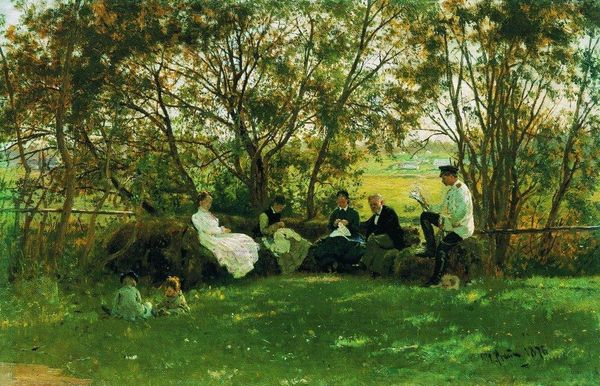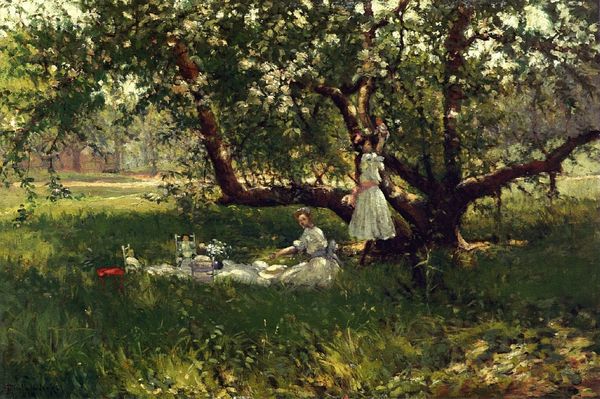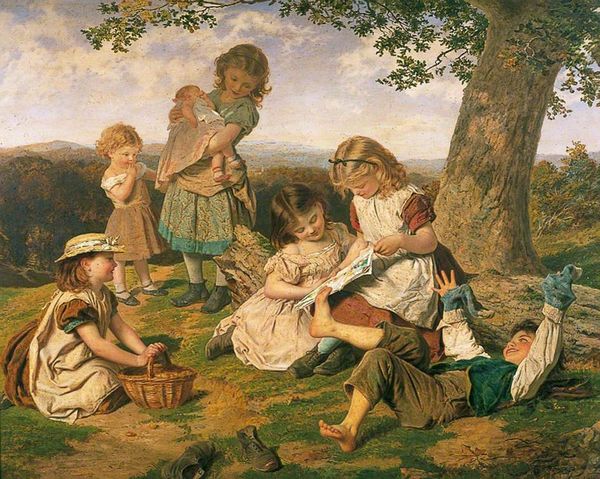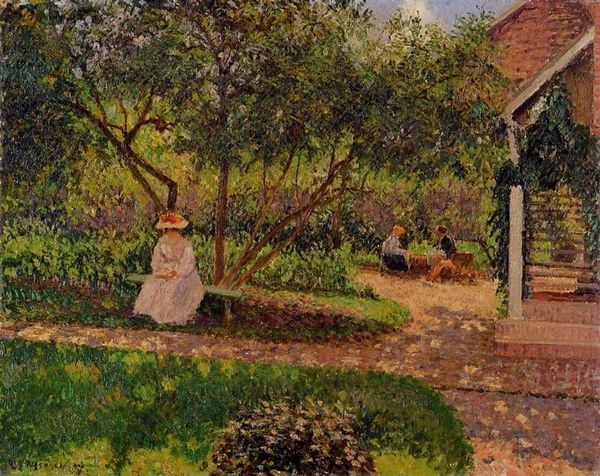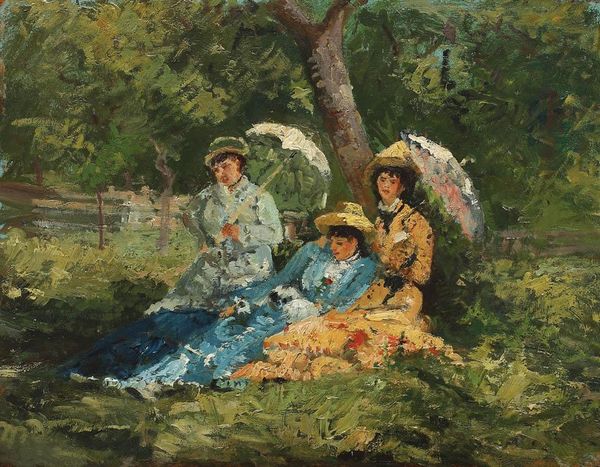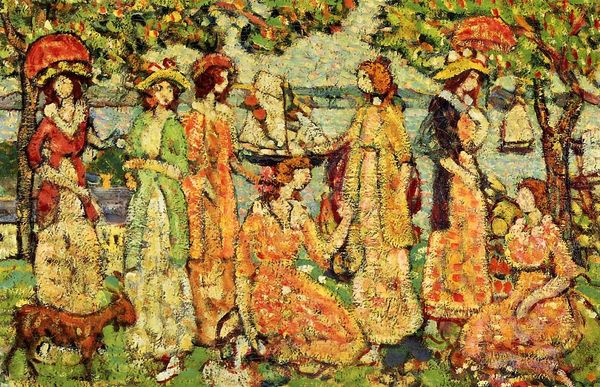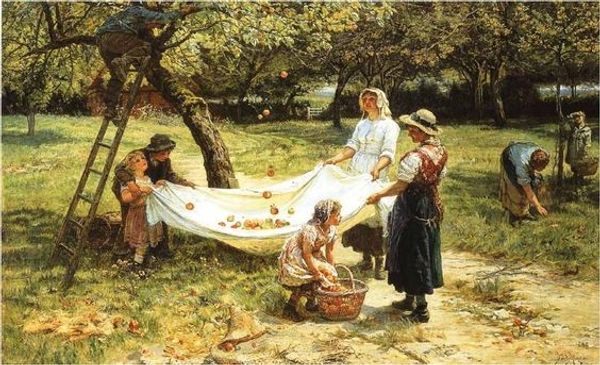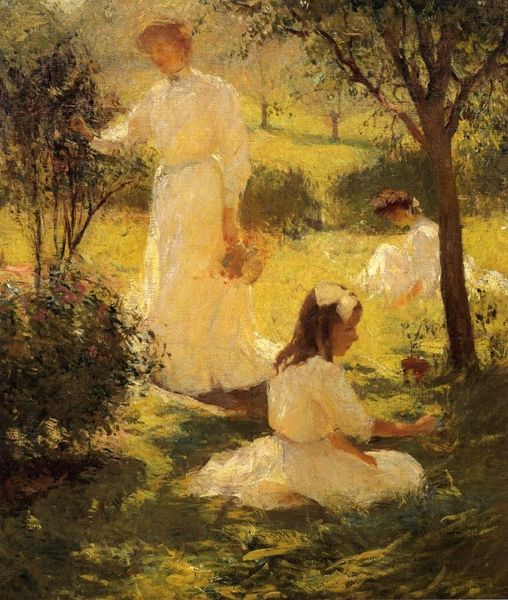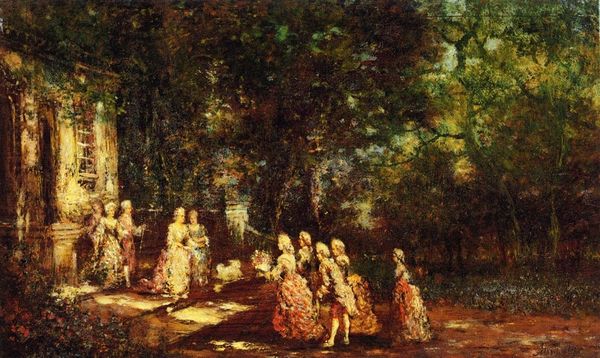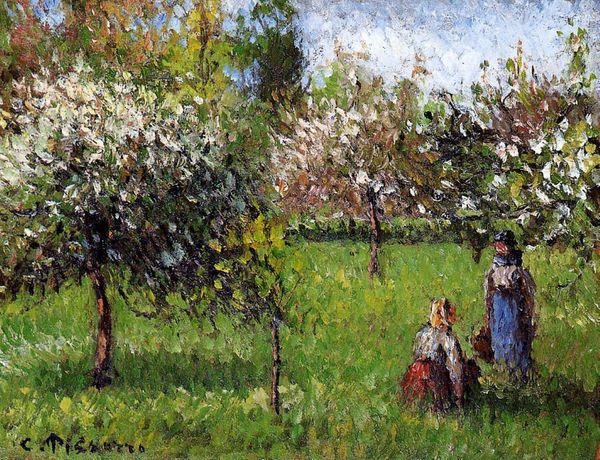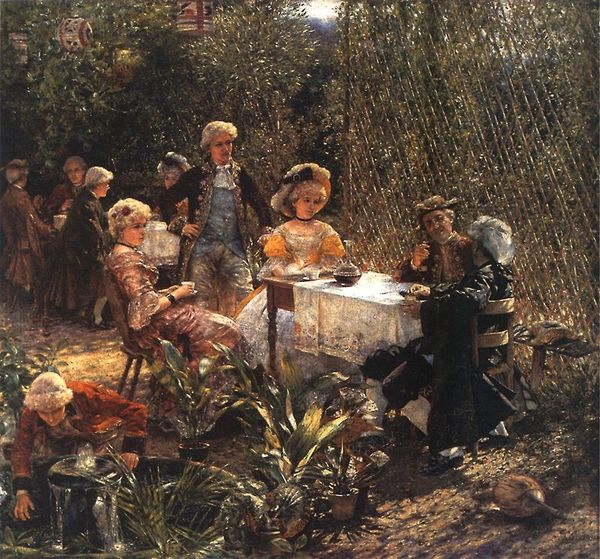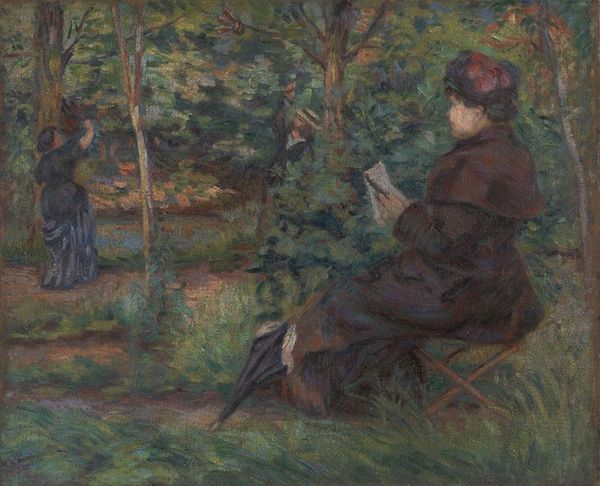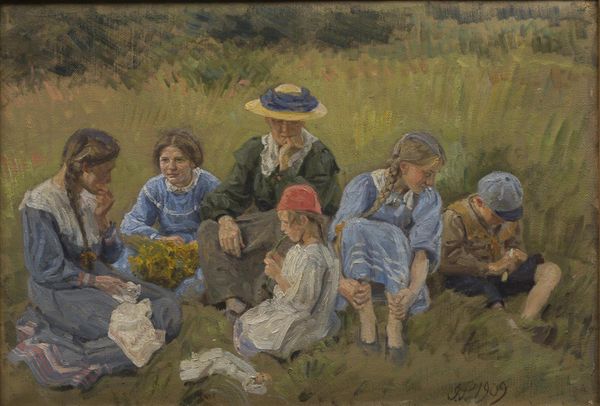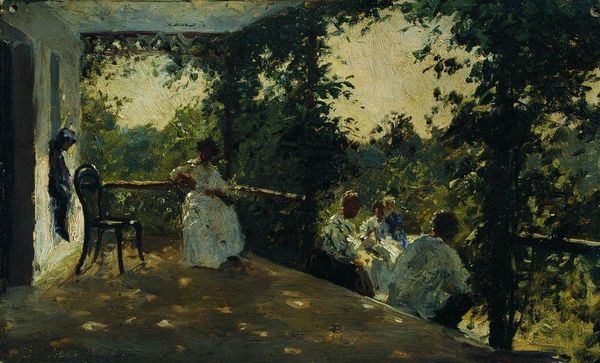
Copyright: Public domain
Editor: So, "The Picnic" by James Charles, painted in 1904 using oil paint... It's interesting. I get this immediate sense of upper-class leisure and carefree summer days, but also a feeling of constraint, like the women are still bound by certain societal expectations, even in this informal setting. What do you see in this piece, especially considering its historical context? Curator: Well, you've already hit upon something crucial: leisure wasn't truly 'leisure' for everyone. Consider the Impressionist movement's focus on everyday life. This picnic scene presents itself as apolitical, pleasant even, but who is represented and *how*? We see women and children, presumably from a privileged background, enjoying a summer day. The image becomes powerful precisely because it excludes other segments of society. Editor: So, you're saying the very act of painting this idyllic scene, and its likely display in a gallery, is a political statement of sorts? It’s about who has the social power to be seen and celebrated? Curator: Exactly. Think about what other types of imagery might have been exhibited at that time, what kinds of narratives museums and galleries prioritized, or more importantly, excluded. These "genre" scenes, as they're sometimes called, aren’t just innocent glimpses into the past; they played a significant role in constructing and reinforcing social hierarchies. The impressionistic brushstrokes and light palette almost soften the social message. What do you make of the landscape in the picture? Editor: I see how the dense trees create almost a theatrical space for this event to take place. Maybe the figures themselves are props too. It is almost like this “leisure” can’t really break free of the expected performativity and gendered representation. Curator: Indeed! That performativity shaped not only how the women experienced the day but how society viewed them and their position. By examining what’s present and notably absent in the scene, we begin to unravel the subtle ways art engages with—and often perpetuates—power dynamics. Editor: Wow, I didn’t think of it that way. It's made me consider how art isn't just a mirror reflecting society, but actively shaping it. Curator: Precisely!
Comments
No comments
Be the first to comment and join the conversation on the ultimate creative platform.
